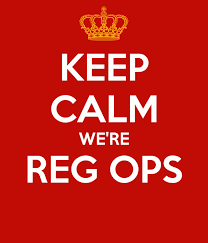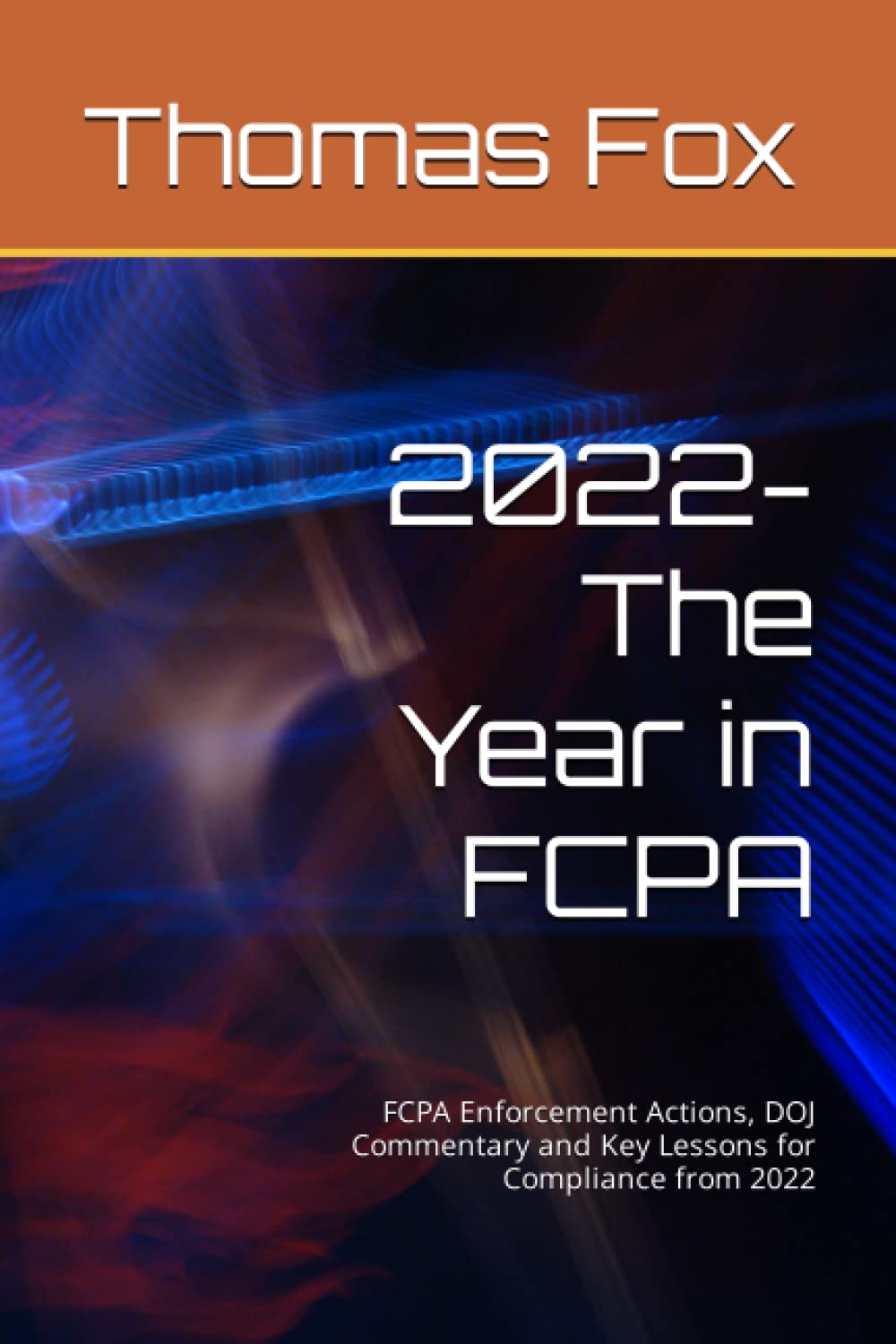2022 saw a relatively slow year in Foreign Corrupt Practices Act (FCPA) enforcement actions. Yet, as usual, the cases themselves were packed with much for the compliance professional to digest. Moreover, 2022 was a very significant year for every compliance practitioner and compliance program. My latest book, 2022 – The Year in FCPA – FCPA Enforcement Actions, DOJ Commentary and Key Lessons for Compliance from 2022 reviews the corporate FCPA enforcement actions from the past year and mine them for lessons which can be garnered by the compliance practitioner.
The cases themselves ranged in fine and penalty values from $1.1 billion (Glencore International A.G.) down to $6.3 million (KT Corporation). The Department of Justice (DOJ) FCPA prosecutions involved the following entities: Stericycle Inc. (Stericycle), with an overall fine of $84 million; Glencore, with an overall fine of $1.1 Billion; GOL Linhas Aéreas Inteligentes S.A. (GOL), with an overall fine of $41 million; ABB Ltd. (ABB) with an overall fine of $315 million and, concluding the year, Honeywell UOP, with an overall fine of $160 million. From the Securities and Exchange Commission (SEC) we saw enforcement actions involving the following entities: KT Corp, with a penalty of $6.3 million; Tenaris S.A., with a penalty of $78 million; Oracle Corporation (Oracle), with a penalty of $23 million, and Stericycle, GOL, ABB and Honeywell, with the fine amounts noted above. Finally, Glencore was also fined by the Commodity Futures Trading Commission (CFTC).
The total fines and penalties were $1.396 billion. Under the new monitorship policy, announced in October 2021 and put into practice through the Monaco Memo, there were two cases which included appointments of Corporate Monitors (Glencore and Stericycle). From the DOJ there were two Declinations. The first involved the French entity Safran S.A. and included a $17 million disgorgement. The second involved the UK entity Jardine Lloyd Thompson Group Holdings Ltd. (JLT) and included a $29 million disgorgement. 2022 saw one individual FCPA trial involving former Goldman Sachs Group Inc. Managing Director Roger Ng, who was convicted for criminally circumventing the firm’s internal controls. The Swedish telecom company Telefonaktiebolaget LM Ericsson (Ericsson) had its monitorship extended for 1 year amidst ongoing investigation they breached the Deferred Prosecution Agreement (DPA) and, finally, the Russian entity Mobile TeleSystems PJSC (MTS) also had its monitorship extended for 1 year.
In the realm of individuals prosecuted there were 24 individual criminal prosecutions and it appeared that individual criminal prosecutions continued at aggressive pace. With the formalization of the Monaco Memo, the DOJ will be targeting more individuals for prosecutions in 2023 so the pace of individual prosecutions will continue and probably increase. In 2022, the majority of the individual prosecution stemmed from prior FCPA actions involving a small number of companies; most notably Petróleos de Venezuela S.A. (PDVSA), Vitol Inc., Odebrecht S.A. and Sargeant Marine Inc. It is significant that the DOJ has continued its use of anti-money laundering (AML) charges, which have a 20-year maximum sentence together with FCPA charges, which have a five-year maximum sentence.
However, 2022 was a very significant year for every compliance practitioner and compliance program. While there was a paucity of corporate FCPA enforcement actions, three actions were significant, with multiple lessons for the compliance professional. In ABB, we learned about the costs of a corrupt culture and recidivism. In Glencore, we saw what happens to a company that engages in worldwide systemic bribery and corruption. Finally, in Stericycle, the company had a culture of corruption burned into the DNA of the LATAM business unit, which was so thorough that it was documented via bribery spreadsheets and analysis of revenue based on payments of bribes in LATAM. Yet even with this corrupt culture, the Stericycle enforcement action demonstrated how a company could take advantage of the discounts available under the FCPA Corporate Enforcement Policy by extensive cooperation and remediation during the pendency of the FCPA investigation, as the company obtained a 25% reduction off the bottom of the applicable US Sentencing Guidelines fine range.
September saw the announcement of a significant refinement of DOJ enforcement policies on the FCPA enforcement and corporate compliance programs. It was encapsulated in the Monaco Memo and a speech by Deputy Attorney General Lisa Monaco announcing the Monaco Doctrine. There was additional commentary by Principal Associate Deputy Attorney General Marshall Miller in a speech and by Assistant Attorney General Kenneth A. Polite. Every compliance professional should know them in detail as they significantly turn the heat up on corporate compliance programs. The Monaco Memo is further clarification and guidance for line prosecutors when considering whether to put a monitor in place. While we have seen these factors in a disparate manner, in disparate places, here they are in writing. Perhaps the greatest significance is that the Memo sets down all these matters in writing, which leads to a blueprint for DOJ thinking and a roadmap for anyone who finds themselves in an FCPA investigation or enforcement action. Finally, the Monaco Memo cemented the new DOJ requirement for CCO certification of compliance programs at the end of a resolution.
The final key event for compliance in 2022 was very much under the radar. The DOJ hired Matt Galvan to help develop data analytics expertise and capability for the FCPA Unit and the Fraud Section. Galvan was most recently the CCO at AB InBev and perhaps the top compliance professional in data analytics for a corporate compliance program. It will be most interesting to see where Galvan and the DOJ take this initiative, but it does portend the increasing use of data analytics in FCPA enforcement and compliance.
What did the year 2022 in FCPA mean for you. Check out 2022-The Year in FCPA now available on Amazon.com.







